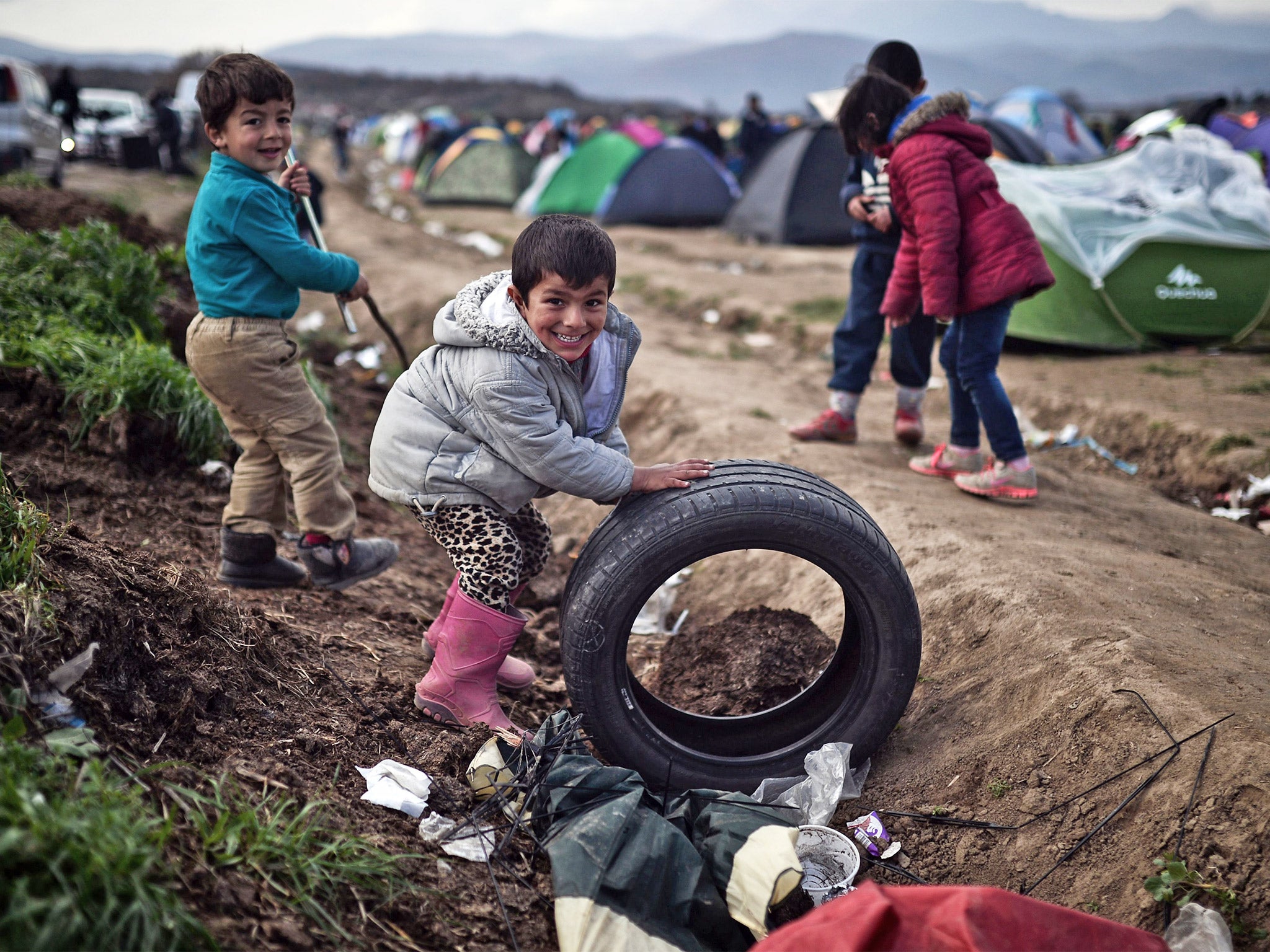Refugee crisis: EU pledges €700m in extra aid to cope with influx from Syria and Iraq
Emergency fund will help Greece and other Balkan nations to cope as UN agency warns of growing humanitarian crisis

A €700m (£542m) emergency aid package to help Greece and other countries to cope with the influx of refugees from Syria and Iraq has been unveiled by the European Commission.
The announcement came as tensions continued to rise, with the European Council’s president, Donald Tusk, warning that the refugee crisis was testing the EU “to the limits”.
The EU aid will pay for basic necessities such as food, shelter, clean water and healthcare until the end of 2018, with €300m available this year. Although all EU member states can ask for a share of the fund, it is expected to be channelled to Greece, where most refugees are landing by boat, as well as the Balkan countries through which they travel on their way to western Europe.
The United Nations’ refugee agency said more than 27,000 refugees were in need of permanent shelter in Greece, and 2,000 a day were arriving there from Turkey.
The EU’s humanitarian aid commissioner, Christos Stylianides, admitted that the money was only a partial response to the crisis, which has seen more than one million refugees stream into Europe in the past year.
“There are no magical solutions,” he said, adding that he anticipated further waves of migration. “In the future, the EU may be faced with other kinds of disasters.” The funding will take a large chunk out of the EU aid budget of €1.3bn a year. Officials said that although the aid was normally used for emergencies outside Europe, it could be used internally if member states found that their own response capacities were overwhelmed.
More and more EU countries have re-imposed border controls to stop refugees passing through. Mr Tusk admitted that the pressure was piling up, especially in the EU’s border-free Schengen zone.
“It is a crisis that is testing our union to the limits,” he said, after meeting the Croatian Prime Minister, Tihomir Orešković, in Zagreb. “We have to avoid an illusion that, instead of the full respect for Schengen rules, there might be another, easy and convenient European solution.”
Mr Tusk, who also visited Slovenia and Macedonia, will pass by Athens on Thursday before heading to Ankara to meet Turkey’s Prime Minister, Ahmet Davutoglu. He will hold talks with President Recep Tayyip Erdogan in Istanbul on Friday, as he lays the groundwork for a special EU summit on refugees in Brussels on Monday,
With migrant numbers expected to rise in the warmer spring and summer months, Austria and other central European nations are already closing their southern borders, effectively ringfencing Greece. EU officials have voiced concerns that the newly built frontiers and temporary border checks could eventually become permanent.
It is hoped that Monday’s talks will produce an effective EU migration strategy. Mr Davutoglu will also attend the summit, which aims to firm up November’s €3bn deal with Turkey to tackle people smugglers and improve conditions for the two million Syrian refugees currently living in Turkish camps.
There were auspicious signs when Turkey’s foreign ministry announced re-admission agreements with 14 countries, meaning it will take back asylum-seekers whose claims have been rejected.
The EC confirmed that 308 north African migrants would be sent from Greece to Turkey as it stepped up efforts to return those with invalid claims.
Meanwhile, the investment bank Morgan Stanley said the EU could see €28bn wiped off the value of its economies – 0.2 per cent of GDP – if the Schengen system of open borders collapsed.
Analysts said that would lead to a 5 per cent surge in the cost of cross-border travel, and a 20 per cent fall in trade flows between countries.
Subscribe to Independent Premium to bookmark this article
Want to bookmark your favourite articles and stories to read or reference later? Start your Independent Premium subscription today.

Join our commenting forum
Join thought-provoking conversations, follow other Independent readers and see their replies